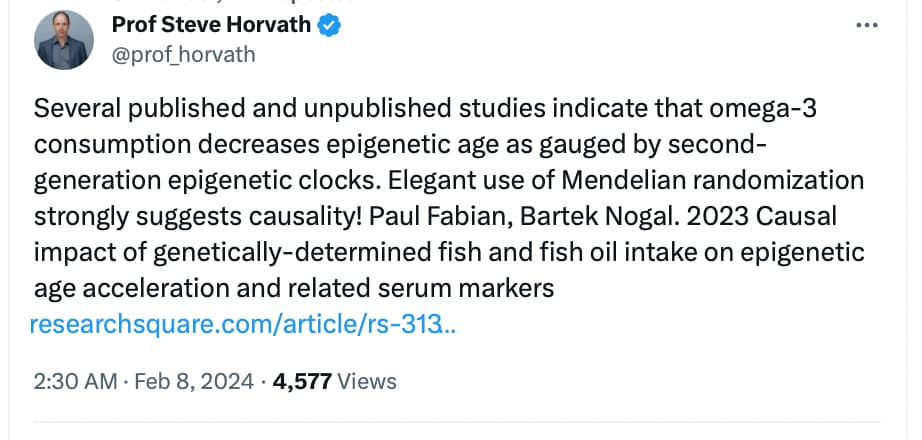Conflict of interests are everywhere indeed. The only research we have that compares C15 to omega-3 is one made in vitro Broader and safer clinically-relevant activities of pentadecanoic acid compared to omega-3: Evaluation of an emerging essential fatty acid across twelve primary human cell-based disease systems - PubMed which includes the narrative of C15 being “essential”…
From what I have observed, just as research did not clearly distinguish between the different types of polyunsaturated fatty acids (n-6 and n-3), for example, this is still common with saturated fatty acids (SFAs). Studies that measure SFAs, rarely measure those with an “odd” chain number. Most of the time, they only measure those with an even chain number, but in the title and conclusion of the studies we read “saturated fatty acid”.
Whether it is a coincidence or not, the evidence we have about polyunsaturated fatty acids is to increase the intake of “odd” n-3, and the studies that measured odd chain SFAs have shown the same reasoning: higher “odd” (OCFA) levels reflects better health results, in comparison with ECFAs.
Since lipidomics is in its infancy, we will learn a lot about the proportions and activities of FAs, depending on the state of fasting, nutrition, microbiota, stress (which includes physical activity) and genetics. However, we shouldn’t compare apples with oranges. I find it very uncomfortable when a company’s marketing team launches unfounded mantras among influencers saying that C15 is superior to omega-3. And I find it even more uncomfortable when I see that among these influencers are health professionals, who have certainly only read the product brochure, but not the studies.
Avoiding being too long here (I’m sorry), but just out of curiosity, since based on a hypothetical study, Venn-Watson also stated that C15 is an “essential” FA (like n-3), and that it depends on the consumption of animal sources. In my research, among the studies with findings that found no evidence that C15:0 depends on the consumption of animal products, Weitkunat et al. (2017), for example, found in their randomized, double-blind, crossover study of 3 interventions with 1-week treatment periods followed by 7- to 10-day washout periods between interventions (cellulose vs inulin vs propionate) that gut-derived propionate is used for hepatic OCFA synthesis in humans. Cellulose did not affect plasma OCFA levels, whereas inulin and propionate increased C15:0 by ∼17% (P < 0.05) and 13% (P = 0.05), respectively. Interestingly, the effect on C17:0 was even more pronounced, since it was elevated in almost all participants who ingested inulin (11%; P < 0.01) and propionate (13%; P < 0.001). Furthermore, cell culture experiments showed a positive association between propionate and OCFA levels (R2 = 0.99, P < 0.0001), whereas palmitate (C16:0) was negatively correlated (R2 = 0.83, P = 0.004). Since many studies have reported an association of OCFA with a reduced risk of type 2 diabetes, this finding may also be related to a higher intake of dietary fiber and not only to C15:0-rich dairy fat.
Likewise, considering the positive effects of propionate on insulin sensitivity, this also provides biological plausibility for the association between OCFA and the reduction in the risk of type 2 diabetes apparent in epidemiological studies, such as that of Forouhi et al. (2014).
Thus, OCFA can originate from different dietary sources and can also be synthesized endogenously, either by the elongation of propionate and C13:0 or via the shortening of the chain of very long OCFA. Another possible pathway would be their conversion from phytosphingosine of certain glycosphingolipids. In the case of de novo endogenous production, some authors suggest that this rate does not occur optimally, depending more on exogenous consumption.
I find biology fascinating because of its redundancy intelligence.
C15 shows a linear relationship to dairy intake? Yes.
If you have a vegan diet, would you have insufficient C15 (and C17)? It depends, maybe yes, maybe not.
Bring on the human studies with more comprehensive lipidomic comparisons!
